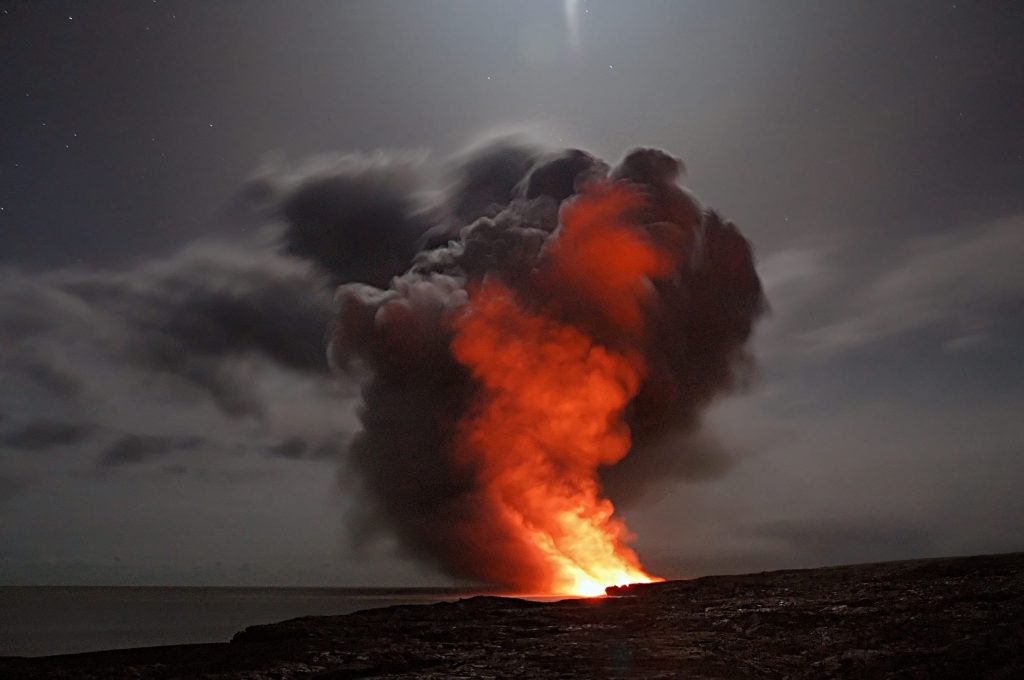
Ashes and a Burning Planet
Ash Wednesday has, in the past few years, grown on me. As I work my way through seminary, it’s meaning gets deeper and deeper over time. It’s become more than just the day where we start our Lenten diets of things that we’ve decided to give up for the 40 days leading up to Easter. Rather, this has become more meaningful as I come to recognize the deep existential reality of the words “you are dust, and to dust you shall return!”
Regardless of how we view the Basileia tou theou, the Kingdom of God, these words call us to see our own mortality and to grapple with human sinfulness. Ash Wednesday allows us to begin this Lenten journey and the ashes that we receive remind us of our “need to repent” as a community of faith.1 We explicitly recognize on this day that we are not as we ought to be, even while trusting that, through Christ, we are all that we ought to be.
The Ash Rises
Yet again, this year brings new opportunity to add a level of meaning to this day. All around the world ashes have been rising both literally and metaphorically for some time. Australian bush fires rage, endangering thousands of acres of land. Alabama is dealing with catastrophic flooding and has declared a state-of-emergency. Climate change seems to be wreaking havoc, specifically in places that are less capable of handling its effects. It’s also naïve to believe that we are immune to any of this. Some reports estimate that without major intervention, the effects of climate change could shrink the US economy by 10%. Still, environmental regulations are being consistently rolled back, threatening to make the changing climate worse.
Speaking of the changing climate, the years 2015-2018 were the “top four warmest years in the global temperature record.”2 In addition to this, the race for resources and deforestation is changing the landscape of our planet. It is estimated that we lost 10% of all species to extinction in just “the last quarter of the twentieth century.”3 All the while, there are still those who adamantly deny that any of this is a problem. Lord have mercy!
All Is Not Lost
As we gather together to ask for mercy in the face of human sinfulness this year on Ash Wednesday and throughout these 40 days, these are the things I’ll be reflecting on. Our neglect of creation, both in the past and present, is inadmissible. While we receive ashes on our foreheads as a sign of repentance, ashes of our collective sin swirl around us. We have not kept our vocation to “till” and to “keep” the garden of the earth (Gen. 2:15, NRSV). Instead, we have made creation expendable.
All is not lost, however. If there is one promise that this Lenten season brings, it’s that where there is death, new life can come. Luther said that God’s will “comes about without our prayer” but that we pray so that “it may also come about in and among us.” The question is, will we continue to work against God’s unfolding creation, or will we let the renewal of creation happen in and through our community of faith? My prayer in this season is that we turn from all that degrades creation and that we let new life flourish among us.
Ash Wednesday is on February 26th.
Resources
1. ELCA Worship Resources “Why and how do we use ashes on Ash Wednesday?” – Click Here to View
2. “WMO Statement on the State of Global Climate in 2018,” Pg. 6. – Click Here to View
3. “Ask the Beasts: Darwin and the God of Love” by Elizabeth Johnson, Pg. 7. – See Book Here